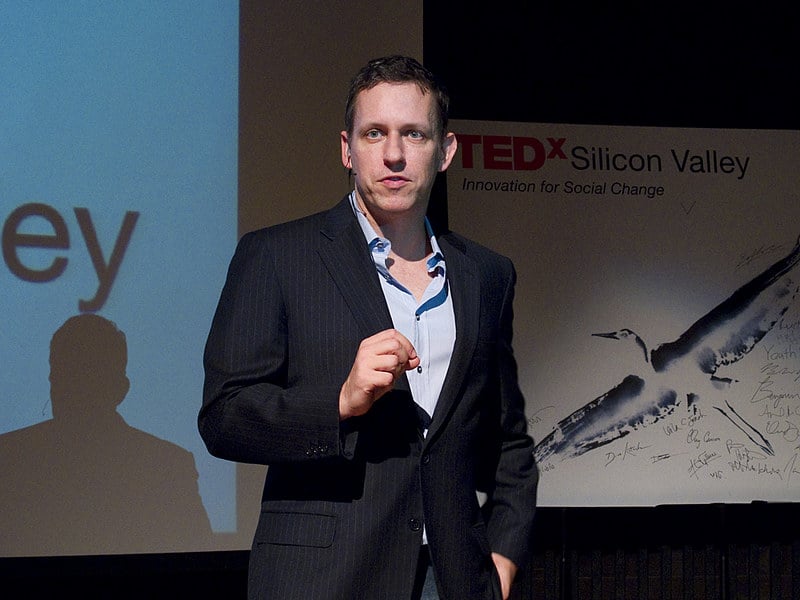INTJ personality types are masterminds because they spend their lives studying people as self-proclaimed social scientists. Some early life disempowerment often catalyzes INTJs to gain a sense of power in their later years. Whereas other personality types might accept whatever fate life dispenses, INTJs have a relentless desire to regain any power taken from them in childhood because of their introversion and sensitivity.
In this vein, INTJs have been labeled ruthless.
Personality Perfect (n.d.) asserted that:
People with the INTJ personality type are ruthless when analyzing the usefulness of methods or ideas. While some other types would happily accept the argument that things have always been done this way, INTJs would question and challenge the existing procedures. This makes them efficient and impartial decision-makers, often at a very young age.
These early childhood experiences motivate INTJs to become world-class strategists.
Truity (n.d.) postulated that:
INTJs are perceptive about systems and strategy and often understand the world as a chess board to be navigated. They want to know how systems work and how events proceed: the INTJ usually has a unique ability to foresee logical outcomes. They enjoy applying themselves to a project or idea in depth and putting in concentrated effort to achieve their goals.
Some mastermind characterizations against INTJs are that they are often viewed as villains in cartoons and entertainment. Hoover (2020) suggested that the fictional Joker was the epitome of an INTJ when he stated:
Many of his schemes to kill Batman revolve around convoluted, detailed plans that could only be done by an INTJ. INTJs are known for their decisive nature, imagination, and ability to create. Joker is the type of man who knows exactly what he wants and will not stop until he gets it, which shows that even the most positive traits have their dark side.
If there is a method to Joker’s madness, it is best exemplified in the movie, Joker, starring Joaquin Phoenix. From the movie’s inception to its climactic conclusion shows the transformation of a sensitive soul targeted by society and the emotional impact manifesting into a menace to society. For INTJs, this movie is the building block to becoming a mastermind in a domineering world.
Puder’s (2019) analysis speaks to the desire for justice by masterminds as noted in Jokerwhen Puder asserted:
Perhaps the start of the empathy the audience begins to feel is when they show a character we want justice for, and some sort of growth and transformation in that character takes place. Joker demonstrated empathy…If the film resonated with you on a personal level, and you saw some similarities between you and Joker, if you feel lonely, unheard, beat up, bullied, disconnected but want connection, you are not alone.
Fortunately, most INTJs are not bent on destruction, but they can be just as sinister if pushed to the edge. And once more, the adversary never sees it coming.
Two conditions cultivate INTJs’ mastermind orientation: 1. Regaining lost power and self-confidence from an early age, and 2. A means of becoming more self-reliant.
Regaining lost power and self-confidence.
Years after INTJs have been bullied or slighted, they can recount the emotions as if they happened recently. They don’t necessarily live in the past, but the past catalyzes present and future behavior. Although we are all products of childhood, INTJs build foundations out of pain. INTJs create moats around themselves to protect against future attacks. Draconian or “Scorched Earth” revenge is only one of the tools in a mastermind’s arsenal. And it’s not the first thing they use, but it’s also not the last. Reasonably, a nemesis isn’t neutralized on a first offense, but the second offense is up for grabs. For INTJs, two wrongs look like a pattern.
They use their intellectual powers for good and have no remorse when revenge has to be exacted on people with bad intentions. The lost paradise of an INTJ’s youth has been rebuilt from the destruction left behind.
Becoming self-reliant
INTJs become “Powers that be” through their creations. They may not be CEOs or captains of industries but create systems within systems. In other words, masterminds will always work for themselves, even if employed by others. They are the ultimate “free agents” and will never fully commit to any structure they didn’t build. Invariably, a corporation is run by mere individuals who manipulate and control the levers of the enterprise. INTJs know this and will never concede to neophytes and dilettantes taking over their world or “Free will.”
For these masterminds, self-reliance is never having to ask for permission. Yes, some things require approval, but INTJs’ moral codes are higher than those they report to. Consequently, their self-created systems circumvent supervisors and cohorts as much as possible or merely tolerate them.
Contrarily, INTJs become masterminds because of the debilitating effects of others treating sensitivity as a weakness and their need to set the world straight.
They accomplish this in 3 ways:
- Storm (2017) noted that: They (INTJs) have an eye for hidden patterns, meanings, and trends, and their forward-thinking mind makes them excellent strategists. They are solving compelling problems. INTJs are preternaturally curious, observant, and care about correcting the wrongs in the world. In this case, masterminds tend to be amoral rather than immoral. In a Machiavellian sense, to wage war against evil requires using whatever tools are available to meet a mission’s objective. Remember, INTJs have a higher moral code, so there is no internal conflict about what is required to affect a specific outcome. If there is blood in the streets, this was critical for a successful mission. The villainous representation of masterminds does not evoke hatred towards them. It may engender love and admiration. For the mastermind is doing what others lack in courage and commitment.
- The building or destruction is based on situational needs. As noted previously in INTJ’s problem-solving initiatives, the identified problem either needs a progressive or regressive response based on its overall impact on individuals or society. A progressive response entails enlightened analysis, benchmarks, and recommendations for resolution. This is a building process for societal improvement. It is an intelligent approach to ridding scourges in society that brings about the type of justice most people demand but are afraid to administer. On the other hand, if the problem impedes individual or collective growth, it must be neutralized or exterminated. It must be quietly done without any fanfare. Solving problems and decision-making aren’t challenges for masterminds. Someone has to do it, and they are more than willing.
- Automate or institutionalize the process to elude human error. The INTJ mastermind knows that humans will err in implementing and executing initiatives left to their own devices. Consequently, creating systems through software or standard operating procedures (SOPs) encourages clarity of purpose and the perpetuity of viable solutions. INTJ masterminds want to only deal with specific problems one time and one time only. These processes are necessary to stave off having to make the same decisions repeatedly.
The INTJ mastermind is a genetic/environmental mutation. INTJs are predisposed to strategic machinations based on personality, which are honed and cultivated through environmental influences. In this regard, what masterminds manifest is commensurate with their experiences in life. They may use their intellectual powers for good or evil. Fortunately, there are more progressive masterminds in numbers than there are regressive. How do I know? Because the world still exists and innovation happens all the time. Essentially, masterminds quietly lead the way. Otherwise, disgraced or outraged masterminds would have turned the lights out long ago.
—Michael Saunders

References
Hoover, B. (2020, June 20). MBTI: 10 DC villains who are INTJs. CBR.com. Retrieved from: https://bit.ly/3oyaBUr.
INTJ personality type profile-The Mastermind (n.d.). Personality Perfect. Retrieved from: https://bit.ly/3b8Rv4f.
Puder, D. (2019, Nov. 23). Joker the movie: A character and cultural psychoanalysis. Psychiatry & Psychotherapy Podcast. Retrieved from: https://bit.ly/3PYFBZx.
Storm, S. (2017, Feb 2). Understanding INTJs intuition. Psychology Junkie. Retrieved from: https://bit.ly/3zCKiD7.
The INTJ personality type (n.d.). Truity. Retrieved from: https://bit.ly/3OTI3zP.




